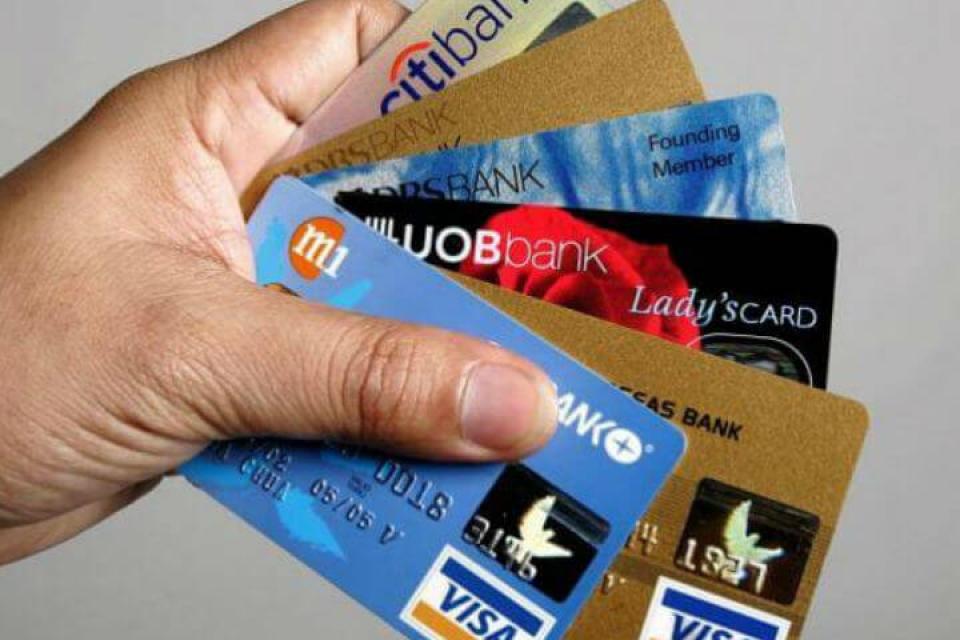Credit cards with its ease of use and convenience can make payments and purchases a lot easier for cardholders.
They provide the cardholder with a chance to purchase a good or item even when they don’t have physical cash. Almost all credit cards provide some form of reward as well further encouraging cardholders to go about swiping their card instead of paying with cash. This has both an advantage and a downside.
The advantage is the cardholder gets the rewards, the downside being the cardholder has to pay it off and if he/she can’t pay it off in full then they have to pay with interest. There are many advantages to using a credit card but as with all good things, too much of a good thing can be bad. Cardholders should refrain from using their credit cards excessively in order to avoid mismanagement and surmounting debt from taking over.
The reasons for a cardholder to limit their credit card utilization are as follows
Payments:
• The main direct benefit of not using the card too heavily is it makes it easier t manage payments. The lesser the card is used the lesser will be the total outstanding balance. A credit card when used well under its credit limit and paid in full by the specified due date can work in favour of the cardholder’s credit score. When the card is limited to only a few expenses that can be paid off easily, it also brings down the minimum monthly payment amount making management of finances a much easier task.
• Over-utilization of a credit card can lead to a heavy balance which not only takes longer to pay off but also has a potential to spiral into debt. Credit cards from OCBC charge an interest rate of 25.92% per annum on card transactions and 28.92% on cash withdrawals. With such credit cards, the high rates of interest make it harder to pay off large balances.
• High interest rates are only part of the problem. When cardholders have too heavy a balance, it’s more likely that they miss a payment. When this happens, to add to the troubles a late payment penalty is also levied. Repeated defaults can trigger penalty interest rates as well further adding to the misery.
• Over utilization of credit cards can lead to exceeding the credit limit which has its own set of disadvantages. When cardholders exceed their credit limit, their minimum monthly payments will include the minimum balance to be paid as well as the amount that the credit limit is exceeded by. This makes it very difficult to repay, especially for those cardholders who continue making minimum payments. Not only does the minimum monthly amount increase, there is also an over-limit fee that is levied.
• Maxed out credit cards become a daunting task to repay solely for the amount of money and the time taken for the balance to reduce. Compounding interest on the card only makes things worse.
Rewards:
• One of the biggest draws of a credit card is the rewards it offers every time an expense is charged to it. Cashback credit cards are a sought after choice and while many cashback cards have a minimum spend requirement, they also become quite redundant as a cashback card after a certain limit has been exceeded.
• Cardholders, in their zeal to get the rewards, swipe their cards to meet the spend requirement but most cashback cards have a cap on the maximum cashback it can provide. A credit card like the UOB One card has a maximum cashback limit of S$600. Regardless of how much the cardholder may charge to the card, the maximum cashback that can be availed is only S$600. The reward hardly seems justified given the total balance the cardholder will be looking at. There are a few credit cards like the ANZ Optimum World MasterCard that might not place a limit on the cashback one can earn but limits the maximum cashback on a single transaction to S$30. If the cardholder has chosen a category of Dining and charges S$600 on a private family lunch, he/she would get a 5% cashback which amounts to S$30, but if the same cardholder used the card for an office lunch that comes up to S$790, the cashback received is still S$30. Excessive spending on such cards will render perceived benefits useless.
Credit Rating:
• The most important cause for not using a credit card too heavily is the damage it will do to a cardholder’s credit rating. A major chunk of a credit report is made up by payment histories on the credit card. Excessive usage of the card can lead to heavy balances which can lead to cardholders missing a payment or two. This negatively impacts the credit score.
• Credit cards that are nearing their credit limit or have exceeded it can also lower the chances of having any loan application approved. Banks take a look at the credit rating of a cardholder and when they see that the rating is low and that credit limits have been exceeded, it shows that the cardholder is poor with management of finances and that the debt the cardholder is in is already too high.
• Cardholders should also limit their card use and factor in interest rates charged and keep enough of the credit limit still available. Loans are provided not just on the credit rating but also the debt to income ratio. The closer the cardholder gets to the credit limit, the higher the debt to income ratio is, the lower are the chances of the loan being approved.
When used to the point of maxing out credit limits, credit cards become a burden. When credit ratings get damaged due to extensive use of the card, it becomes a burden. Credit cards perform at their best when the cardholder is able to make full payments on time. Limiting the utilization of credit cards allow cardholders to maintain a manageable balance, utilize a small portion of their credit limit and keep their credit ratings high and be able to enjoy all the benefits and rewards a card has to offer.















